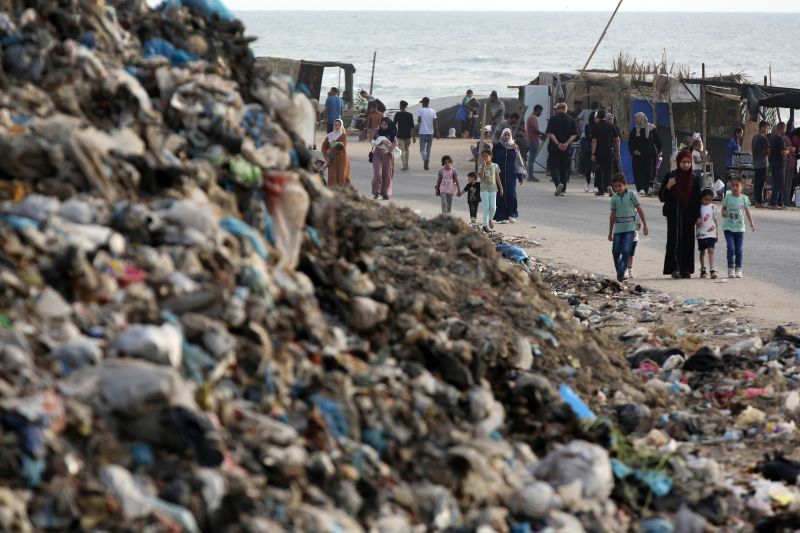
Rising Threats: Flies, Mosquitoes, and Garbage Pile Up in Gaza’s Health Crisis
Flies, Mosquitoes, Raw Sewage, and Mountains of Garbage Threaten to Worsen Gaza’s Health Crisis
The current health crisis in Gaza is at a critical crossroads as the combination of various environmental factors poses a severe threat to the well-being of its residents. Flies and mosquitoes, along with the presence of raw sewage and mountains of garbage, are exacerbating the already dire situation in the region. This article elaborates on the pressing issues that Gaza faces concerning its environmental health and emphasizes the urgent need for comprehensive intervention measures.
The proliferation of flies and mosquitoes in Gaza not only poses a nuisance but also significantly contributes to the spread of diseases. These pests thrive in unsanitary conditions, which are unfortunately abundant in the region due to the ongoing conflict and economic instability. The lack of proper waste management infrastructure and the scarcity of resources for pest control have allowed these insects to flourish, putting the population at risk of malaria, dengue fever, and other mosquito-borne diseases. Additionally, flies can act as vectors for various illnesses, contaminating food and water sources and increasing the likelihood of bacterial infections among residents.
Raw sewage is another major environmental concern in Gaza, with approximately 110 million liters of untreated or partially treated wastewater being discharged into the Mediterranean Sea daily. This practice not only pollutes the marine ecosystem but also seeps into the groundwater, leading to widespread water contamination. The consumption of contaminated water poses a serious health hazard, causing waterborne illnesses such as diarrhea, cholera, and hepatitis. Moreover, the foul odor and unsightliness of sewage in residential areas contribute to a deteriorating quality of life for the local population.
Furthermore, the accumulation of mountains of garbage in Gaza exacerbates the environmental degradation and health risks faced by its residents. Due to the limited capacity of existing landfills and the blockade imposed on the region, the disposal of waste has become a significant challenge. Garbage collection services are irregular, leading to overflowing trash bins and illegal dumping in public spaces. The decomposition of organic waste attracts pests and vermin, creating breeding grounds for disease-causing pathogens and further compromising public health.
Addressing these critical environmental issues in Gaza requires a multi-faceted approach that combines immediate interventions with long-term sustainable solutions. Investing in waste management infrastructure, including landfill expansion, recycling facilities, and composting programs, is essential to alleviate the burden of mounting garbage in the region. Additionally, implementing mosquito control measures, such as proper drainage systems, insecticide spraying, and community awareness campaigns, can help curb the spread of insect-borne diseases and improve public health outcomes.
Furthermore, the treatment and reuse of sewage can mitigate water pollution and reduce the risk of waterborne illnesses in Gaza. Advanced wastewater treatment technologies, coupled with the implementation of strict regulations on sewage discharge, are crucial steps towards safeguarding the environment and public health in the region. Collaborative efforts among local authorities, international organizations, and community stakeholders are necessary to address these pressing environmental challenges and ensure a healthier future for Gaza’s residents. By prioritizing environmental health and adopting sustainable practices, Gaza can begin to overcome its current crisis and build resilience against future threats to public well-being.
